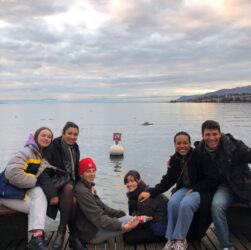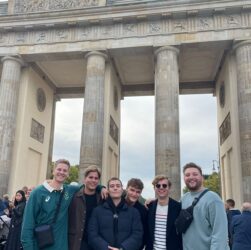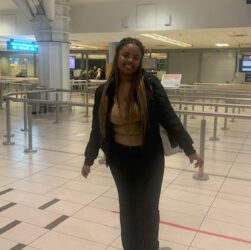Mvelo Nzimande LLB Student Semester Exchange in the Second Semester, 2022 at Bern University Pre-departure: I decided that I …


Mvelo Nzimande LLB Student Semester Exchange in the Second Semester, 2022 at Bern University Pre-departure: I decided that I …

Christiaan de Wet LLB Student Semester Exchange in the Second Semester, 2022 at Bucerius Law School Pre-departure: The pre-departure preparations …

Adrienne Hendricks LLB Student Semester Exchange in the Second Semester, 2022 at the University of Amsterdam Pre-departure: The pre-departure period …